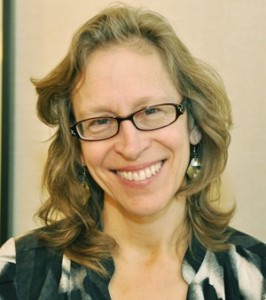Climate Change and the Food Supply
- Share
- Tweet
- Pin
- Share
Professor Molly Jahn believes it is just a matter of time before Wisconsin politicians catch up to what many of their constituents have already discovered, that climate change is not a distant concept for future generations to deal with.
“Regardless of individuals’ political bent, the fact that we are 50 years into a seriously different climate is now inescapable to people who farm,” Jahn said. “People who are connected to agriculture track these things for a living, no matter what their politics are. Our growing season here in Wisconsin has shifted as much as 30 days in some parts of the state. That’s something that has already happened. It’s not theoretical or in the future.”
Jahn, a professor at the University of Wisconsin – Madison with appointments in the Department of Agronomy, the Laboratory of Genetics, and the Center for Sustainability and the Global Environment, is one of the speakers at the 2nd Annual Climate Change Forum presented on May 9 by the Climate Change Coalition of Door County at Stone Harbor Resort in Sturgeon Bay.
The above description does not do justice to Jahn’s accomplishments. From 2006-2011, she served as dean of the University of Wisconsin’s College of Agricultural and Life Sciences and Director of the Wisconsin Agricultural Experiment Station, and in 2009-10, she provided interim leadership as Deputy and Acting Under Secretary of Research, Education and Economics at the U.S. Department of Agriculture. And even that just skims the surface (read a longer biography at agronomy.wisc.edu/molly-jahn).
“I’m really looking forward to learning more about the community and its interest in these topics. As a coastal location, Door County has more than a theoretical interest in these subjects,” she said, adding that forums such as the one being held in Sturgeon Bay are rarely seen outside of much larger areas.
“It’s quite rare in a rural area, so I’m looking forward to coming for a visit,” Jahn said.
Tasked with kicking off the forum, Jahn will talk about her specialty, threats to the global food supply.
“For my entire career, I’ve been involved in agricultural research,” she said. “So through that lens, I’ve come to have an appreciation for the ways in which environmental conditions – in particular I’m going to talk about weather because that’s the reflection of climate – can affect food systems, and in a sense the fragility of our global food systems when it comes to significant changes in environmental conditions. And of course that may not only be from effects on the climate but we also have effects of a growing population with growing demands for water, energy and food. So I’m going to talk about the ways in which demands create pressure, on food systems in particular. And what some of the implications of that may be for all of us as citizens and human beings.”
Jahn said in the agricultural community, the question is not about the existence of climate change but “how big a culvert are you going to put in the next time the one before washes out?”
“The realities of dealing with it are setting in. We’ve had much more frequent extreme rainfall events in the last couple of decades, many more warm days, more hot-cold swings in the spring and the fall,” she said. “All of these put stress on agricultural communities. Sadly, politics are often moved by very short-term financial interests. Regardless of what our local politicians say, those who are writing insurance that are affected by payouts related to extreme weather are readjusting their standards as we speak. We can put our heads in the sand and get caught off guard or recognize that business is paying attention to these dynamics, as you can imagine. It costs real money to manage the consequences of any of these kinds of threats.
“My expectation is that the politics will follow. Like any argument we have in society, there are lags, often by decades. A good analogy I think is the public health consequences of smoking. We knew decades before the big changes in public health standards that smoking had many ill health effects, but it took some time for our policies and politics to catch up.”
While she admits to “keeping company with people whose job it is to be concerned about our welfare and, in particular, quantifying risks that we as a society and, in particular, that we as economies face,” Jahn said there are many hopeful signs in the world.
“There are communities all around the world and countries that are taking these threats very seriously and working to explore ways to both reduce greenhouse gas emissions and prepare themselves for the consequences of imminent change in their part of the world – whether that’s water or conservation issues or other kinds of measures that will secure their country or community going forward. I see that happening all over the world.”

